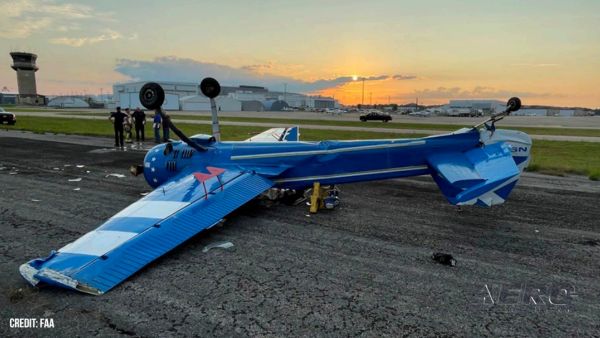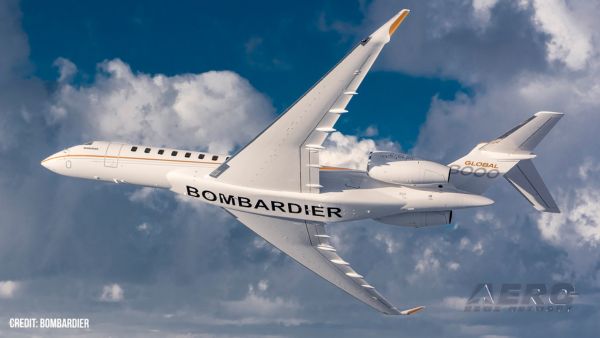Thu, Jul 08, 2010
Will Study How Pilots Respond To TCAS, Interact With
Automation
 The FAA has reached an agreement
with Georgia Tech to research how the increased sophistication on
the flight deck under the Next Generation Air Transportation System
(NextGen) will affect flight crewmembers and controllers. The
agreement is the first of several the FAA expects to announce in
the coming months with universities that specialize in
aviation-related human factors research. For the FAA, the
work will be conducted by the Human Factors Research and
Engineering Group, which is part of the Research and Technology
Development Office.
The FAA has reached an agreement
with Georgia Tech to research how the increased sophistication on
the flight deck under the Next Generation Air Transportation System
(NextGen) will affect flight crewmembers and controllers. The
agreement is the first of several the FAA expects to announce in
the coming months with universities that specialize in
aviation-related human factors research. For the FAA, the
work will be conducted by the Human Factors Research and
Engineering Group, which is part of the Research and Technology
Development Office.
Amy Pritchett, an associate professor in Georgia Tech's School
of Aerospace Engineering, will lead a study of pilot response to
alerts from the Traffic Alert and Collision Avoidance System (TCAS)
under NextGen. TCAS warns pilots about potential mid-air collisions
and gives specific instructions on evasive action to both pilots.
Pritchett's team will examine how pilots should respond to these
alerts in the future, when the increased safety and efficiency that
comes with NextGen's satellite-based technologies means that
aircraft may be operating closer together.
Frank Durso, an Engineering Psychology professor, will lead a
team exploring how flight crews and controllers interact with
automation. Specifically, Durso's team will focus on how roles will
evolve with NextGen technology. Durso will first lay the groundwork
by examining how pilots and controllers work with today's
automation. His team will then see how pilots and controllers in
the future can use automation to manage their workloads and to
improve their situational awareness and performance. Research
results will also help FAA develop guidance for aviation safety
oversight of NextGen operations.
 Georgia Tech, which has conducted
important aviation-related human factors research for the FAA and
NASA, was chosen after the FAA conducted a thorough market survey
of schools with expertise in this area. In addition to an
outstanding staff and students, the school has a wide range of
aviation research capabilities including air traffic control
simulators and an Airbus flight deck simulator.
Georgia Tech, which has conducted
important aviation-related human factors research for the FAA and
NASA, was chosen after the FAA conducted a thorough market survey
of schools with expertise in this area. In addition to an
outstanding staff and students, the school has a wide range of
aviation research capabilities including air traffic control
simulators and an Airbus flight deck simulator.
The research done by Georgia Tech will be shared with the public
through presentations of research findings at national and
international symposia in order to foster a broad understanding of
how NextGen will enhance the ability of pilots and controllers to
effectively use new technologies and procedures.
More News
“Each Honor Flight mission is a special occasion, but the ability to be a part of EAA AirVenture always creates unforgettable moments. Honoring our local Vietnam veterans out>[...]
From 2015 (YouTube Edition): The Airframes Displayed At AUVSI 2015 Were Quite Innovative It’s common to visualize a small vertical lift UAV as having 4 to 6 propellers, it&rs>[...]
The Airplane Began A Descent While Still In A Right Turn And Impacted Terrain On March 13, 2025, about 0733 central daylight time, a Cessna 525A airplane, N525CZ, was destroyed whe>[...]
It Looks Like It's Gonna Get A Bit Tight, Klyde FMI: www.klydemorris.com>[...]
Also: Blackhawk’s Replacement, Supersonic Flight, Archer 1Q/25, Long-Range VTOL Program U.S. Secretary of Transportation Sean P. Duffy released an update on progress being ma>[...]
 Aero-News: Quote of the Day (05.25.25)
Aero-News: Quote of the Day (05.25.25) Classic Aero-TV: Efficient Versatility -- NASA GL-10 Greased Lightning
Classic Aero-TV: Efficient Versatility -- NASA GL-10 Greased Lightning NTSB Prelim: Cessna 525
NTSB Prelim: Cessna 525 Klyde Morris (05.23.25)
Klyde Morris (05.23.25) Airborne-NextGen 05.20.25: Drone Regs, Zero-Emission Cargo, Door-Dash Drone
Airborne-NextGen 05.20.25: Drone Regs, Zero-Emission Cargo, Door-Dash Drone




